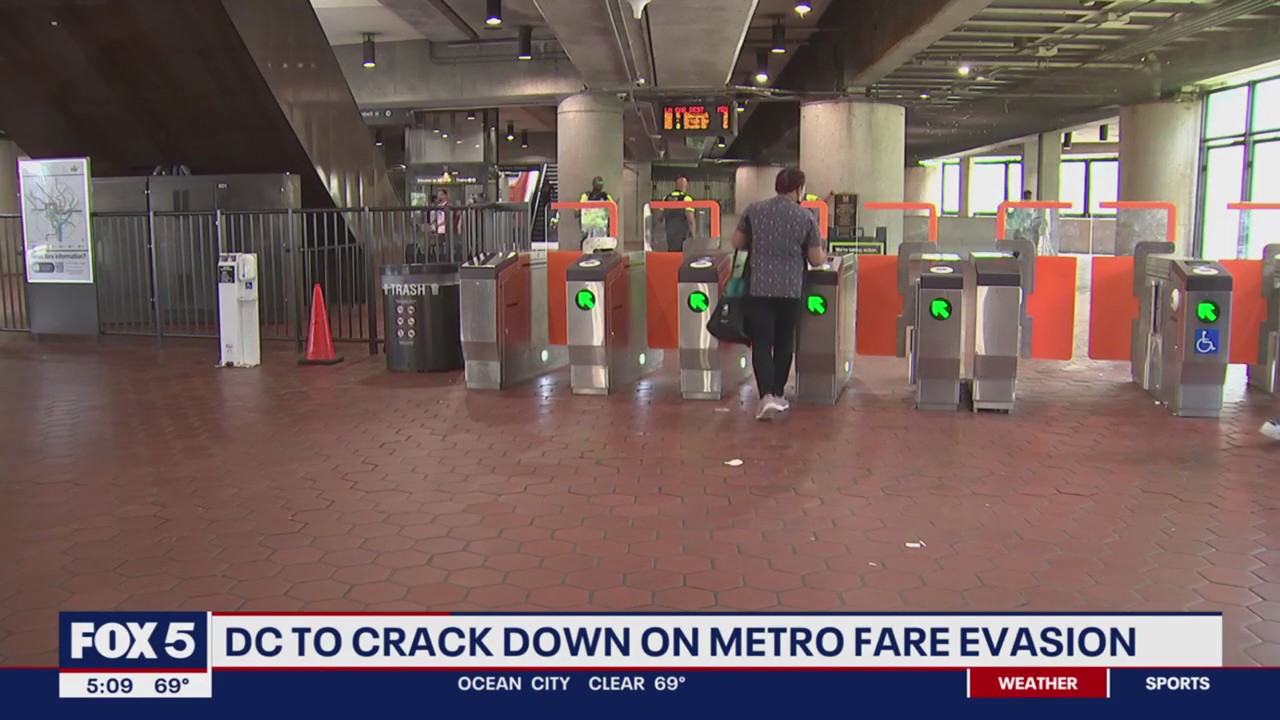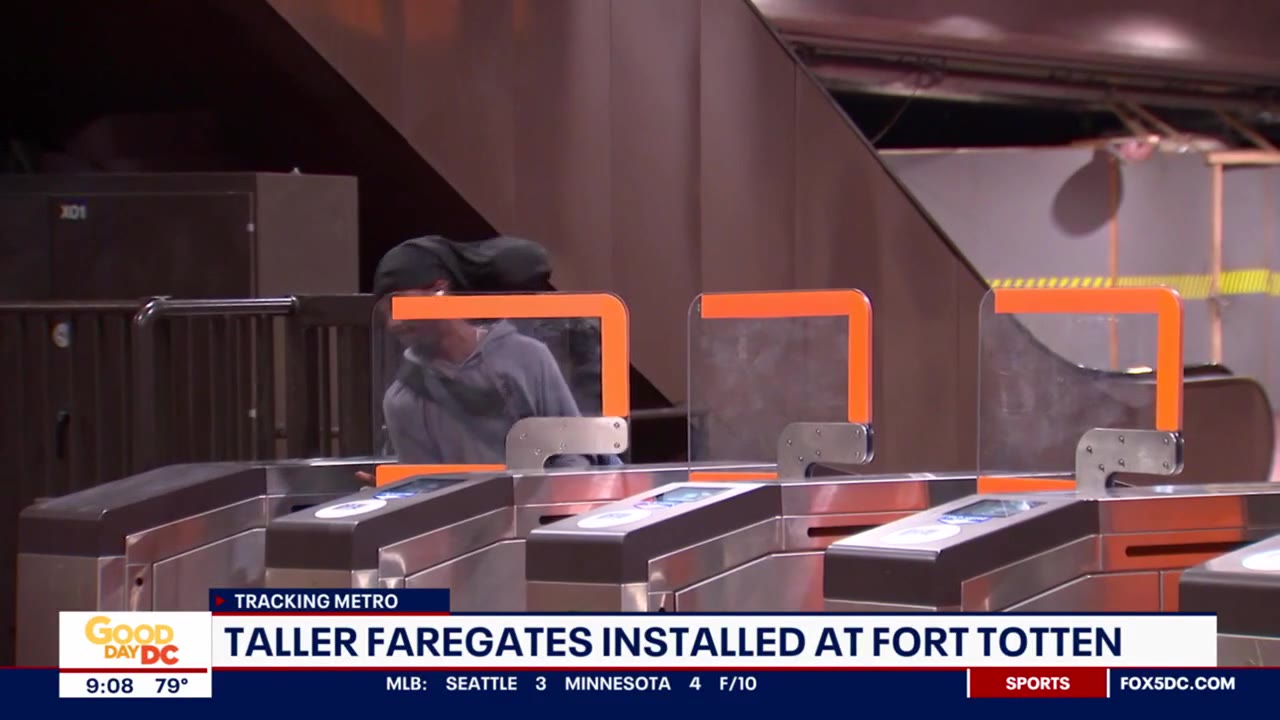Proposed DC bill could allow Metro Police to crack down on fare evasions

Proposed DC bill could allow Metro Police to crack down on fare evasions
D.C.’s City Council Committee on Public Safety held a hearing Wednesday about a bill intended to help better enforce fare evasions in D.C. Metro stations. FOX 5's David Kaplan has the story.
D.C.’s City Council Committee on Public Safety held a hearing Wednesday about a bill intended to help better enforce fare evasions in D.C. Metro stations.
Fare evasion was decriminalized in 2018. Metro Police can stop a person suspected of evading fares, but largely cannot force them to comply. Many either walk away from the police or simply refuse to pay the $50 fine.

Suspected Metro fare evaders caught on camera
Metro riders put new higher and stronger faregates that were designed to help the transit agency stop people from getting on trains without paying to the test Tuesday.
The Metro Safety Amendment Act of 2023 would allow MTPD to require a fare evader to give his or her name, birthday and possibly social security number for identification.
Council member Brooke Pinto said the new bill would not make fare evading a criminal offense, but would "give teeth to what civil enforcement means."

New bill targets Metro fare evaders giving police fake names
A new bill from D.C. Councilmember Brooke Pinto aims to close a loophole in the District’s fare evasion law. FOX 5's Tom Fitzgerald has all the latest details.
"I think current law doesn’t really provide for any repercussions as far as fare evasion," said Metro Police Chief Michael Anzallo. He said he thinks the new bill "strikes the right balance."
The new bill would increase the authority of Metro Police, giving them the power to detain a fare evasion suspect if they aren’t complying when police stop them and determine if they may have given fake ID information.
Council member Zachary Parker questioned whether such authority would be necessary.
"What safeguards need to be in place from preventing this authority to having negative impacts on district residents — especially our young people?" Parker said.
Law enforcement at the hearing clarified that the new identification process would not be aimed at children. MTPD can only cite a fare evader if he or she looks to be over 22 years old.
Katerina Semyonova, a representative from the Public Defender Service, said that higher physical barriers at fare gates would prove more effective than tougher enforcement.
Semyonova said she wanted to see the bill balance "the harms that are caused by the interaction between police and residents over this fare and the ability to essentially solve the problem through infrastructure."
The taller gates have decreased fare evasion by 70%, authorities said. But MTPD said the higher gates only stop casual fare evaders.
Featured
Lack of Metro funding could lead to a 'transit death spiral:' WMATA
WMATA said it needs to fill a $750 million funding gap for the next fiscal year starting July 1, 2024.
The new bill would focus on disrupting evaders who are more determined to get into the Metro illegally.
"Those are the individuals that we want to stop," Chief Anzallo said. "Those are the individuals we want to see if they have any open warrants, and those individuals, that determined to get over that gate, more than likely, they’re going to commit a crime on Metro."
The Committee on the Judiciary and Public Safety is set to have further discussions about Metro Safety Amendment Act.


